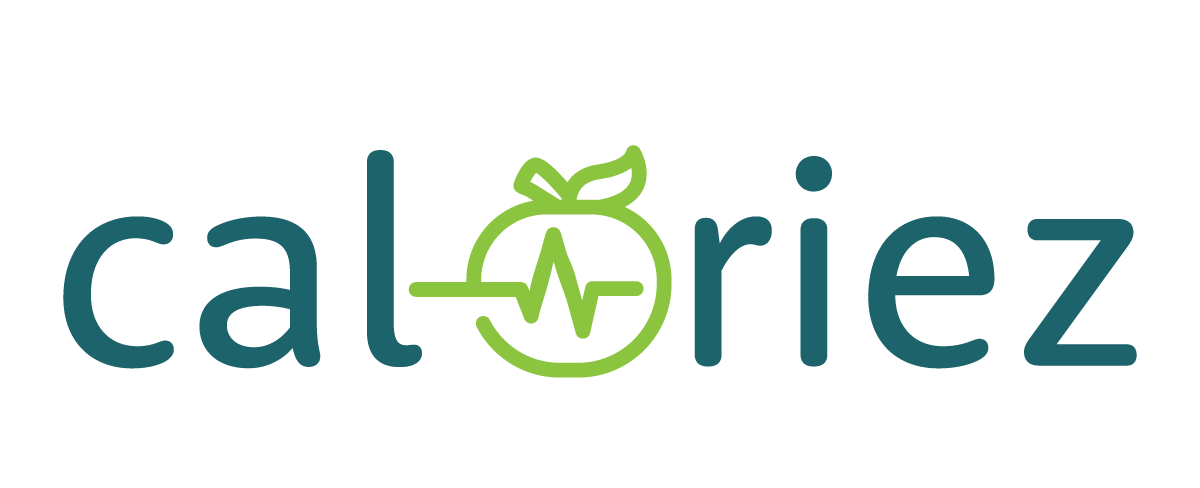The dying certificates for Ryan Bagwell, a 19-year-old from Mission, Texas, states that he died from a fentanyl overdose.
His mom, Sandra Bagwell, says that’s unsuitable.
On an April evening in 2022, he swallowed one tablet from a bottle of Percocet, a prescription painkiller that he and a pal purchased earlier that day at a Mexican pharmacy simply over the border. The following morning, his mom discovered him useless in his bed room.
A federal regulation enforcement lab discovered that not one of the drugs from the bottle examined optimistic for Percocet. However all of them examined optimistic for deadly portions of fentanyl.
“Ryan was poisoned,” Mrs. Bagwell, an elementary-school studying specialist, stated.
As hundreds of thousands of fentanyl-tainted drugs inundate america masquerading as widespread drugs, grief-scarred households have been urgent for a change within the language used to explain drug deaths. They need public well being leaders, prosecutors and politicians to make use of “poisoning” as an alternative of “overdose.” Of their view, “overdose” means that their family members had been addicted and chargeable for their very own deaths, whereas “poisoning” exhibits they had been victims.
“If I inform somebody that my little one overdosed, they assume he was a junkie strung out on medication,” stated Stefanie Turner, a co-founder of Texas Towards Fentanyl, a nonprofit group that efficiently lobbied Gov. Greg Abbott to authorize statewide consciousness campaigns about so-called fentanyl poisoning.
“If I inform you my little one was poisoned by fentanyl, you’re like, ‘What occurred?’”, she continued. “It retains the door open. However ‘overdose’ is a closed door.”
For many years, “overdose” has been utilized by federal, state and native well being and regulation enforcement companies to file drug fatalities. It has permeated the vocabulary of stories reviews and even fashionable tradition. However during the last two years, household teams have challenged its reflexive use.
They’re having some success. In September, Texas started requiring dying certificates to say “poisoning” or “toxicity” relatively than “overdose” if fentanyl was the main trigger. Laws has been launched in Ohio and Illinois for the same change. A proposed Tennessee invoice says that if fentanyl is implicated in a dying, the trigger “have to be listed as unintentional fentanyl poisoning,” not overdose.
Conferences with household teams helped persuade Anne Milgram, the administrator of the Drug Enforcement Administration, which seized greater than 78 million pretend drugs in 2023, to routinely use “fentanyl poisoning” in interviews and at congressional hearings.
In a listening to final spring, Consultant Mike Garcia, Republican of California, recommended Ms. Milgram’s phrase selection, saying, “You’ve accomplished a wonderful job of calling these ‘poisonings.’ These aren’t overdoses. The victims don’t know they’re taking fentanyl in lots of instances. They suppose they’re taking Xanax, Vicodin, OxyContin.”
Final 12 months, efforts to explain fentanyl-related deaths as poisonings started rising in payments and resolutions in a number of states, together with Louisiana, New Jersey, Ohio, Texas and Virginia, in accordance with the Nationwide Convention on State Legislatures. Sometimes, these payments set up “Fentanyl Poisoning Consciousness” weeks or months as public training initiatives.
“Language is basically essential as a result of it shapes coverage and different responses,” stated Leo Beletsky, an professional on drug coverage enforcement at Northeastern College College of Legislation. Within the more and more politicized realm of public well being, phrase selection has turn into imbued with ever better messaging energy. Throughout the pandemic, for instance, the label “anti-vaxxer” fell into disrepute and was changed by the extra inclusive “vaccine-hesitant.”
Dependancy is an space present process convulsive language change, and phrases like “alcoholic” and “addict” are actually typically seen as reductive and stigmatizing. Analysis exhibits that phrases like “substance abuser” can even affect the habits of docs and different well being care employees towards sufferers.
The phrase “poison” has emotional power, carrying reverberations from the Bible and basic fairy tales. “‘Poisoning’ feeds into that victim-villain narrative that some individuals are on the lookout for,” stated Sheila P. Vakharia, a senior researcher on the Drug Coverage Alliance, an advocacy group.
However whereas “poisoning” presents many households a buffer from stigma, others whose family members died from taking unlawful road medication discover it problematic. Utilizing “poisoning” to tell apart sure deaths whereas letting others be labeled “overdose” creates a judgmental hierarchy of drug-related fatalities, they are saying.
Fay Martin stated her son, Ryan, a industrial electrician, was prescribed opioid painkillers for a piece damage. When he grew depending on them, a physician lower off his prescription. Ryan turned to heroin. Ultimately, he went into therapy and stayed sober for a time. However, ashamed of his historical past of habit, he saved to himself and progressively started to make use of medication once more. Believing that he was shopping for Xanax, he died from taking a fentanyl-tainted tablet in 2021, the day after his twenty ninth birthday.
Though he, like hundreds of victims, died from a counterfeit tablet, his mourning mom feels as if others have a look at her askance.
“When my son died, I felt that stigma from individuals, that there was private duty concerned as a result of he had been utilizing illicit medication,” stated Ms. Martin, from Corpus Christi, Texas. “However he didn’t get what he bargained for. He didn’t ask for the quantity of fentanyl that was in his system. He wasn’t making an attempt to die. He was making an attempt to get excessive.”
To a rising variety of prosecutors, if somebody was poisoned by fentanyl, then the one who offered the drug was a poisoner — somebody who knew or ought to have identified that fentanyl may very well be deadly. Extra states are passing fentanyl murder legal guidelines.
Critics notice that the concept of a poisoner-villain doesn’t account for the problems of drug use. “That’s a bit too simplified, as a result of lots of people who promote substances or share them with pals are additionally within the throes of a substance use dysfunction,” stated Rachael Cooper, who directs an anti-stigma initiative at Shatterproof, an advocacy group.
Individuals who promote or share medication are normally many steps faraway from those that combined the batches. They might seemingly be unaware that their medication contained lethal portions of fentanyl, she stated.
“In a nonpoliticized world, ‘poisoning’ could be correct, however the way in which it’s getting used now, it’s reframing what is probably going an unintentional occasion and reimagines it as an intentional crime,” stated Mr. Beletsky, who directs Northeastern’s Altering the Narrative venture, which examines habit stigma.
In toxicology and drugs, “overdose” and “poison” have value-neutral definitions, stated Kaitlyn Brown, the scientific managing director of America’s Poison Facilities, which represents and collects information from 55 facilities nationwide.
“However the public goes to know terminology in another way than people who find themselves immersed within the discipline, so I feel there are essential distinctions and nuances that the general public can miss,” she stated.
“Overdose” describes a better dose of a substance than was thought of secure, Dr. Brown defined. The impact could also be dangerous (heroin) or not (ibuprofen).
“Poisoning” signifies that hurt certainly occurred. However it may be a poisoning from numerous substances, together with lead, alcohol and meals, in addition to fentanyl.
Each phrases are used whether or not an occasion leads to survival or dying.
Till about 15 years in the past, the Facilities for Illness Management and Prevention, an esteemed supply of knowledge on nationwide drug deaths, typically used each phrases interchangeably. A C.D.C. report detailing rising drug-related deaths in 2006 was titled “Unintentional Drug Poisoning in america.” It additionally referred to “unintentional drug overdose deaths.”
To streamline the rising drug fatality information from federal and state companies, the C.D.C. shifted solely to “overdose.” (It now additionally collects statistics on reported nonfatal overdoses.) The C.D.C.’s Division of Overdose Prevention notes that “overdose” refers simply to medication, whereas “poisoning” refers to different substances, resembling cleansing merchandise.
When requested what unbiased phrase or phrase may greatest characterize drug deaths, consultants in drug coverage and therapy struggled.
Some most well-liked “overdose,” as a result of it’s entrenched in information reporting. Others use “unintentional overdose” to underscore lack of intention. (Most overdoses are, actually, unintentional.) Information retailers sometimes use each, reporting {that a} drug overdose befell because of fentanyl poisoning.
Dependancy drugs consultants notice that as a result of a lot of the road drug provide is now adulterated, “poisoning” is, certainly, essentially the most easy, correct time period. Sufferers who purchase cocaine and methamphetamine die due to fentanyl within the product, they notice. These hooked on fentanyl succumb from luggage which have extra poisonous mixtures than they’d anticipated.
Ms. Martin, whose son was killed by fentanyl, bitterly agrees. “He was poisoned,” she stated. “He acquired the dying penalty and his household acquired a life sentence.”




